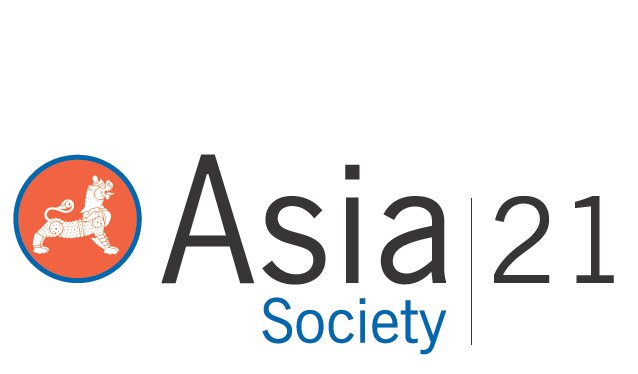by Jeremy Lim (Delegate/Singapore, Seoul Summit 2006; Singapore Summit 2007)
SIGNET is to the best of my knowledge the first of its kind, a philanthropically funded healthcare leadership and management program to nurture and support healthcare leaders in North India wanting to make a difference. I have been privileged to be involved since its inception and after 4 visits to India and countless meetings and tele-conferences, perhaps it is time to take stock and reflect on some observations.
SIGNET started after a serendipitous meeting between Prof Lazaer Mathew and Dr Joseph Mathew and I in Montreal in June 2008. A spirited discussion on what ails healthcare in developing countries led us to the conclusion that while resources were scarce in developing countries, an equally pressing concern was the often poor utilization of these resources. Decision-making by healthcare leaders and hospital managers was identified as a key weakness that could be ameliorated, and with the generous funding of the Temasek Foundation, SIGNET was born.
SIGNET aims to provide clinicians and managers making healthcare resource decisions with the skills to move from ‘ego to evidence’ as Prof Raj Bahadur, the Director Principal of Government Medical College Hospital Sector 32 and advisor to SIGNET, succinctly puts it. Healthcare resource decisions are often based on superficial understanding of the medical literature, personal biases, professional pride and commercial influences, but they should be based instead on the paradigm of population needs and best practices derived from the scientific literature and contextualized to local circumstances. Our framework is based on asking three simple and yet profound questions: ‘Does it work?’, ‘Does it work here?’ and ‘Is it worth it?’. ‘It’ being any healthcare intervention, be it vaccination, a new drug, a clinic workflow or a community outreach program.
We started with the notion of a typical ‘training of trainers’ format but quickly learnt that this would be insufficient. Our program now starts with a half-day workshop with senior hospital leaders to create awareness of the science of decision-making and evidence-informed management. After garnering support from the leadership, we then begin in-depth learning with middle managers and clinicians about the tools which include health technology assessment, health economics, process improvement and managing innovation. Another lesson we learnt along the way was the need to anchor the learning in specific innovation projects. The rationale was two-fold: firstly to provide a vehicle to put the classroom theory into practice and secondly and more importantly, to enable visibility of the fruits of such innovation to the larger hospital community. I say more importantly because our efforts are not to train a cadre of skilled managers, but to seed changes in mindset and practices of the hospital. In an environment so steeped in conservatism and filled with highly skilled, highly intelligent and opinionated professionals as healthcare is, early successes are vital to encourage the innovators and to win the support of peers.
The workshops include a training stint in Singapore also, and whilst costly, are absolutely integral to the program. Much of the expertise relevant to our innovators is found in Singapore hospitals and the exposure to a totally different environment with different cultural norms and practices has been invaluable in igniting the sparks of creativity.
A third differentiator has been the strong support of our partners Duke-NUS Graduate Medical School (GMS). GMS has played a pivotal role in developing pedagogical expertise and by sharing so freely their expertise and insights in medical education, they have equipped our participants with the necessary wherewithal to impart effectively their new-found skills.
What have I learnt? Firstly, there is a certain ‘universality’ to healthcare and many challenges faced by our brethren in Chandigarh and Delhi are the same ones we struggle with. Secondly, to teach is truly to learn twice and whilst the program is purportedly a capacity building one to benefit India, we Singaporeans have also been much enriched by our experiences in India and we bring these lessons into our stewardship of the Singapore system. Thirdly, “Morality must march with capacity” was James Grant’s rallying call as he led UNICEF through its ambitious vaccination and diarrheal disease programs in the 1980s and for us in Singapore, who have been privileged with probably one of the best healthcare systems in the world, the opportunity to play our part and contribute internationally should be seized.
SIGNET is an acronym for Singapore India Group Network for Empowerment Training and focuses on building healthcare leadership in North Indian hospitals including Post Graduate Institute for Medical Education and Research (PGI), Government Medical College Hospital Sector 32, Chandigarh and Catholic Health Association of India (CHAI) hospitals such as Holy Family, Delhi. It comprises the following components:
1. Awareness creation workshop for hospital leaders
2. Healthcare Managers’ Leadership Program (In India and Singapore)
3. 1 year long facilitated innovation project
4. Training of peers in evidence-informed healthcare decision-making
Jeremy Lim, Project Director (Singapore) for SIGNET, is Senior Consultant in the Ministry of Health, Singapore while on secondment from Singapore Health Services.

1 comment:
Hello Everybody,
My name is Mrs Sharon Sim. I live in Singapore and i am a happy woman today? and i told my self that any lender that rescue my family from our poor situation, i will refer any person that is looking for loan to him, he gave me happiness to me and my family, i was in need of a loan of $250,000.00 to start my life all over as i am a single mother with 3 kids I met this honest and GOD fearing man loan lender that help me with a loan of $250,000.00 SG. Dollar, he is a GOD fearing man, if you are in need of loan and you will pay back the loan please contact him tell him that is Mrs Sharon, that refer you to him. contact Dr Purva Pius,via email:(urgentloan22@gmail.com) Thank you.
Post a Comment